No longer defending workers, the retired Len McCluskey is free to defend his friends
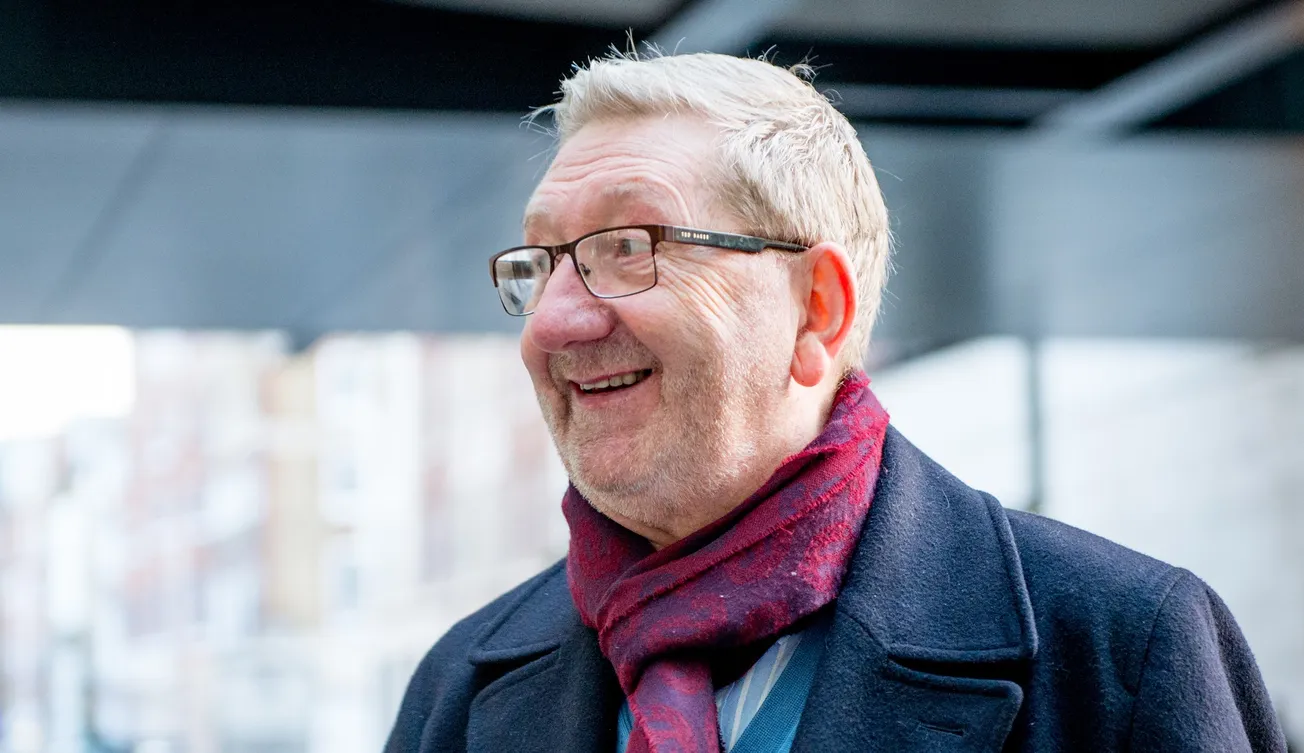
'Now make certain when you write this up it's not about fucking Joe Anderson'
“Now make certain when you write this up it's not about fucking Joe Anderson or Paul Flanagan,” says Len McCluskey as we finish our interview in the Hilton opposite Albert Dock. We’re facing each other over a small table in the hotel’s downstairs dining room, enclosed on three sides by a leather booth and on the remaining side by a press aide from Unite, the trade union McCluskey ruled for a decade as general secretary.
Most of our conversation hasn’t been about Joe Anderson and Paul Flanagan, the former Liverpool mayor and the local construction tycoon, both of whom have been arrested in the same anti-corruption probe, and both of whom are friends of his (another McCluskey friend, Derek Hatton, has also been arrested in the same investigation). But yes, the topic of Liverpool’s political scandal has come up. We’re talking in late October, just as McCluskey steps down from the role that made him Britain’s most powerful trade unionist, and he is throwing caution to the wind.
“I read the report on Liverpool that was commissioned and it made me smile,” he says, referring to last year’s official report by Max Caller into the operation of the council, which found evidence of poor-value contracts, an environment of intimidation and a “serious breakdown of governance”. The report caused widespread anger in the city and there have been very few voices defending the council and Anderson’s regime, but McCluskey says he didn’t find Caller’s findings convincing. “I thought to myself: you could send commissioners into any city, any major metropolitan city in this country, and if they dug deep enough, of course, they would come up with issues that would appear to be not as straightforward,” he tells me. “I thought it was unfair on Liverpool.”
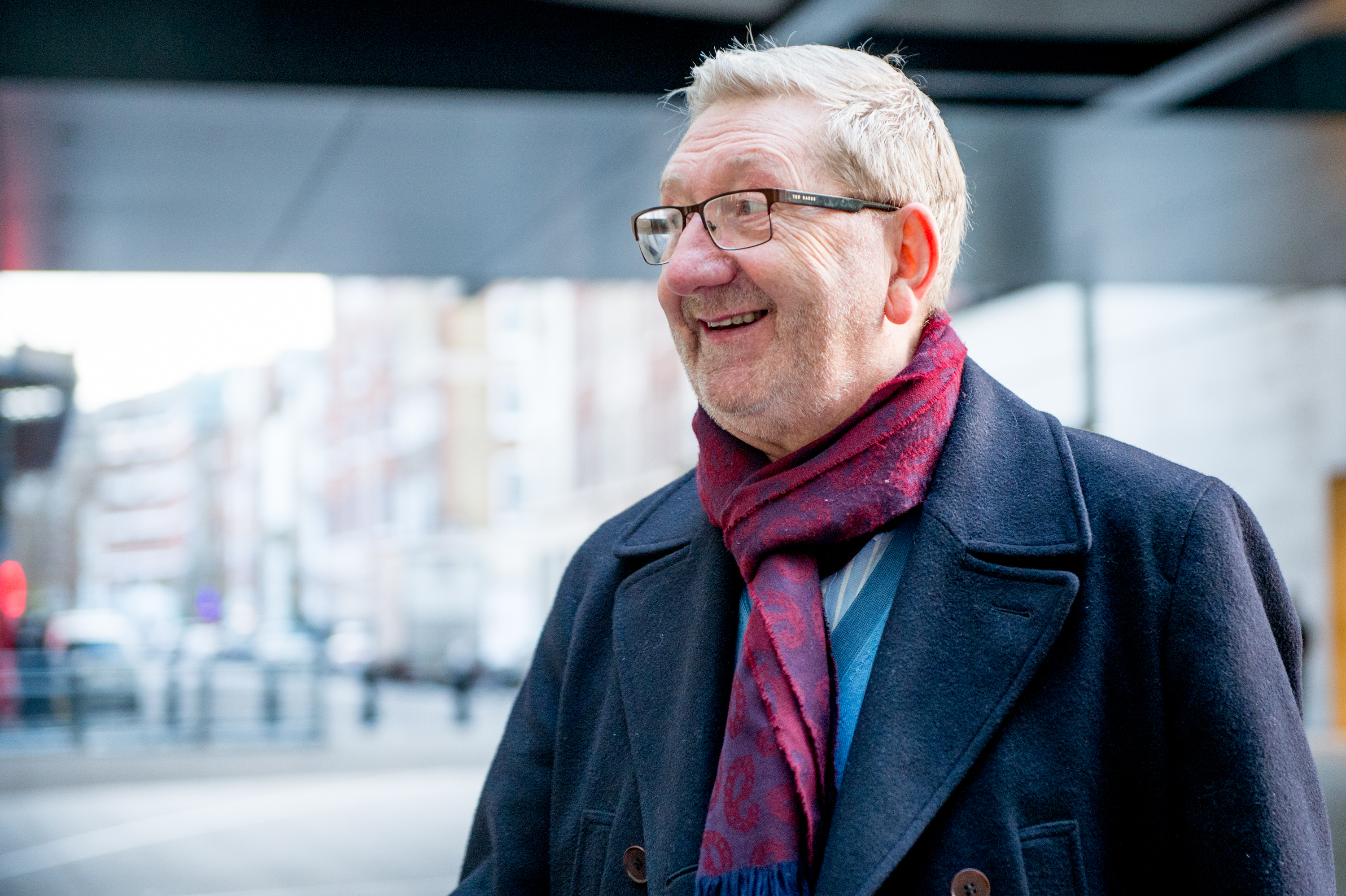
McCluskey’s recently released autobiography, Always Red, is dedicated to Liverpool, the city where he grew up and made his way in the world of trade unionism. Large parts of the book are dedicated to explaining his role in the rise of his close ally Jeremy Corbyn and settling scores with enemies on the right of the Labour party. But it also tells the story of his upbringing in 1950s Kirkdale. McCluskey depicts his childhood as poor but happy, with a lot of love from his parents and plenty of cockroaches finding their way into the family’s two-up two-down terrace.
“These old houses were infested by rats and mice,” he says. “Of course, when you look back now — there were no inside toilets, there was no bathroom, the tin bath was on the backyard wall — you realise how wrong that was.” He remembers taking Christmas dinners up the back entries to where his uncle lived because he had been out of work and didn’t have any money, a story McCluskey tells to illustrate the mutual support that he associates with working class communities and deeply values as an ideal social ethic. He remembers friends and their families being moved to “horrible soulless estates,” and how the process broke down neighbourly spirit.
His dad was a painter and decorator, and the family had been suffering economic insecurity for generations. His maternal grandfather (who he never met) was a stoker on the ships, “a big, powerful man,” who was working on the Carpathia when it picked up survivors from the Titanic. When the stoker’s wife died, he was left looking after five daughters (including McCluskey’s mother) and a son. The Catholic church wanted to take the children away because it was thought that a man couldn’t look after that many children, but he resisted. In the book, McCluskey writes:
My Aunty Lil told me of an occasion when the family was huddled in the kitchen in the winter cold, with no heat and no light. Lil, Aunty Sue, Aunty Mary, and the youngest, Uncle Larry, were crying while my granddad tried to keep them warm with coats. “Don’t worry, now,” he said, “our Maggie will be home soon and it’s pay day, she’ll have some pennies for the gas.” Maggie—my mum—was 14 years old at the time, working in a bakery. Here was this proud, hardworking man having to rely on his young daughter to keep his family warm.
That stuck with McCluksey. Another influence on his politics was The Ragged-Trousered Philanthropists, a semi-autobiographical novel which was published in 1914, three years after its author, the Irish house painter Robert Noonan, died of tuberculosis in Liverpool Royal Infirmary. Noonan wrote under the pen name Robert Tressell and was buried in pauper’s grave opposite Walton Gaol, the location of which was only discovered in 1977. McCluskey remembers joining a march of trade unionists with his dad on the day that a headstone was installed there.
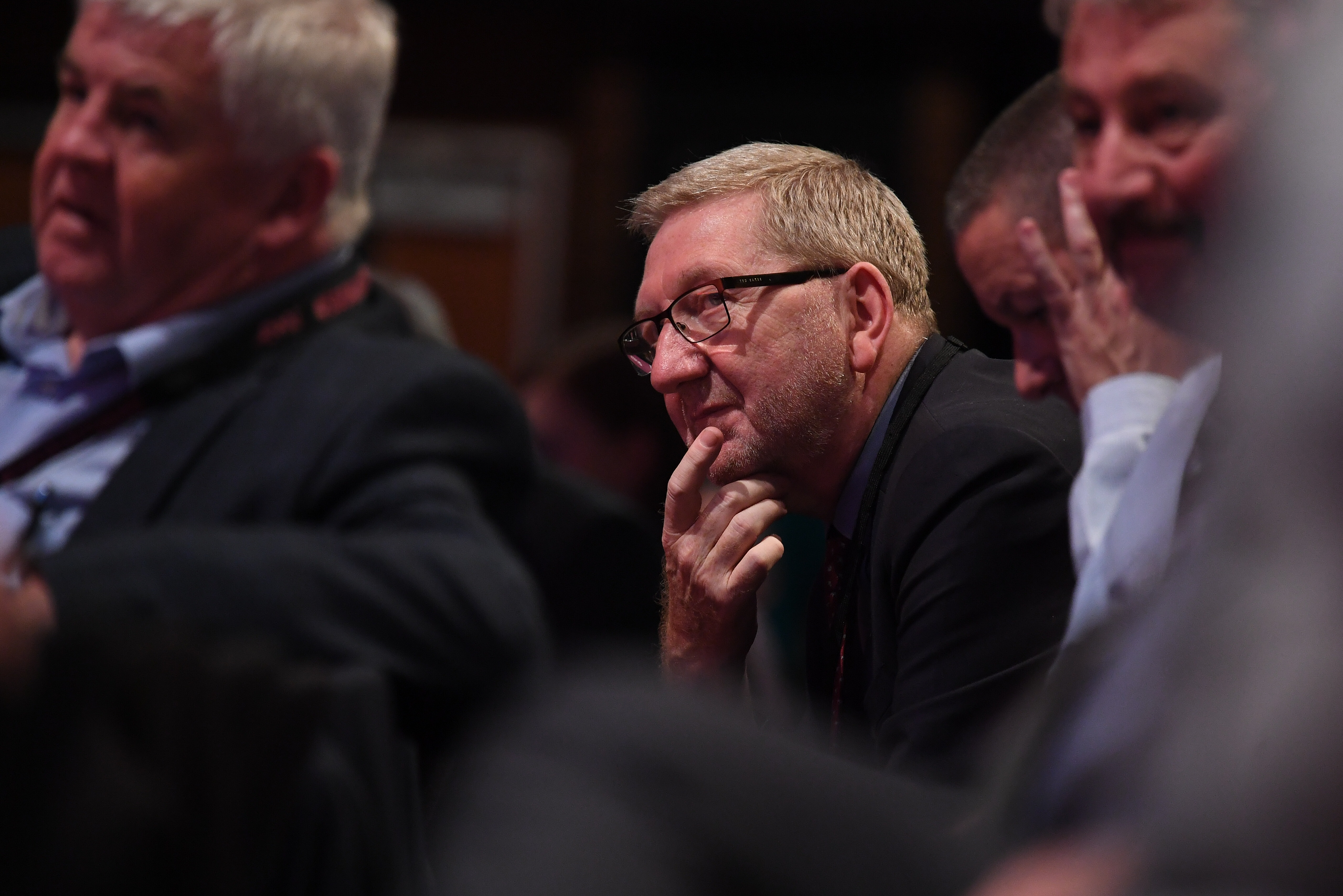
McCluskey made his name as a young man on the docks, where he worked as a planman — a job that involved working out how to stack ships with cargo, which was considered a white-collar role. At the time, “the power of the workers was greater than ever,” he writes, and the findings of the Devlin Committee in 1965 meant that the dockers had managed to escape decades of casual work practices and precarious income. McCluskey says the reputation of the Liverpool dockers for being too militant and strike happy was unfair. “A significant proportion of the strikes in the 1970s were due to the employers being unhappy they could no longer treat the dockers as they had in the ‘50s and ‘60s,” he writes.
In 1979, aged 28, he left the docks and became a full-time official for the T&G union, a forerunner of Unite. But the 1980s was an inauspicious time to be making your way as a trade unionist. He remembers picking up the Echo and the Daily Post every Friday to read the weekly announcements of closing factories — “every Friday used to be called Black Friday” — as the region’s industry was dramatically cut back. He was left negotiating lost causes with companies who were headquartered hundreds of miles away, and he noticed how the increasing joblessness changed the psychology of the city’s neighbourhoods.
“The stigma of unemployment was real, and then that started to change, in the sense that people became anaesthetised to unemployment,” he says. “In a street, instead of two or three people being unemployed, and 100 people employed, suddenly 60 or 70 people were unemployed. And of course, that changes the psyche in any community.”
After the defeat of the 1989 dockers strike “casualisation was returning to haunt the port,” McCluskey writes. And that’s a major theme of his career and of the decline of British trade unionism — not just the decimation of domestic manufacturing, but the expansion of agency work, zero-hours contracts and the recent emergence of freelance “gig economy” roles created by companies like Uber, Hermes and Deliveroo. He tells me about meeting Mike Ashley to push the Sports Direct boss to give his workers contracts that guaranteed hours and says he thinks most workers who do casual work via food and delivery apps would much rather be employed. He rejects the idea that many self-employed drivers value the flexibility of the work and the experience of choosing their hours and not having a boss.
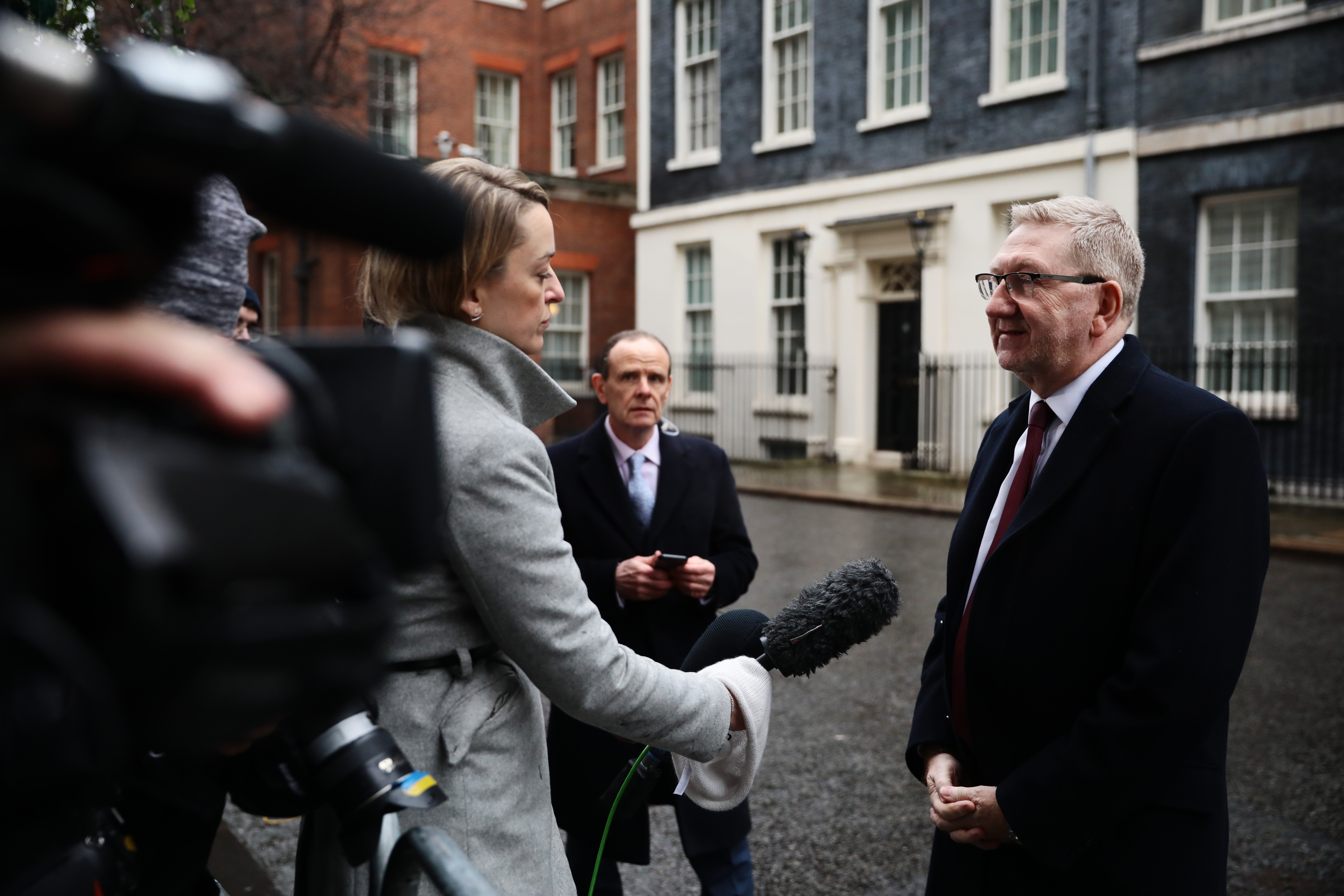
“It's used as though it's a sexy thing, the gig economy, actually it's exploitation of working people,” McCluskey says. For trade unions, the question has become — how do you organise a workforce that doesn’t have a workplace? And how on earth do you build a sense of solidarity and collective spirit among people who drive for Uber one day, deliver for Just Eat the next and run an online shop on eBay, at least some of whom see themselves as entrepreneurs rather than workers? McCluskey doesn’t seem to know, but calls the precarious work available to many of Britain’s workers “absolutely despicable”. “I worked on the docks just after de-casualisation had been done away with,” he says. “And this is modern-day casualisation.”
Many people will read McCluskey’s book primarily for its insights into the Corbyn era in the Labour party. “If not for a campaign of sabotage from within his own party, Corbyn would have been in Number 10,” he writes. He says the 2017 general election, in which Corbyn performed much better than expected and Labour secured 40% of the vote, shows that a left-wing programme can appeal to broad sections of the electorate. There is also a startlingly unreflective chapter about Labour’s antisemitism crisis, which — in the words of a Guardian review — “manages to be both dull and, in its omissions and evasions, rather offensive”.
McCluskey also covers his relationship with Militant, writing:
Contrary to popular belief, I was never a member of the Militant Tendency, although I was attracted to many of their policies and developed friendships with several of them that have stood the test of time, including Tony Mulhearn, a highly respected figure in Liverpool politics who sadly died in 2019, and the flamboyant ‘face’ of Militant, Derek Hatton, still a close friend.
When the cock crowed in the late ’80s and Militant were expelled from the Labour Party and debarred from office, many sought to distance themselves from them and deny any past association. I was not one of the deniers. I had lived through the heroic battles between Liverpool City Council, heavily influenced by Militant from 1983, and the Thatcher government. These were incredible, heady days. District Labour Party meetings would have attendances of 700-800 members. Democratic argument raged. The city was alive with debate. It was so intoxicating it almost had the feel of the Smolny Institute in the 1917 October Revolution.
Which brings us to Hatton, Anderson and Flanagan, all of whom McCluskey is close to, and all of whom have been arrested under Merseyside Police's Operation Aloft investigation into development contracts in Liverpool (to date, none of the men have been charged with any offences). Separately, questions have been raised over Flanagan’s company getting the contract to build a hotel and conference centre for Unite in Birmingham, a project which also saw a contract given to a company owned by Joe Anderson’s son. Unite insists McCluskey had no role in the awarding of the contracts, but it has now launched a QC-led inquiry after a recent valuation of the building “estimated its value as being considerably lower than the costs incurred in developing the site”.
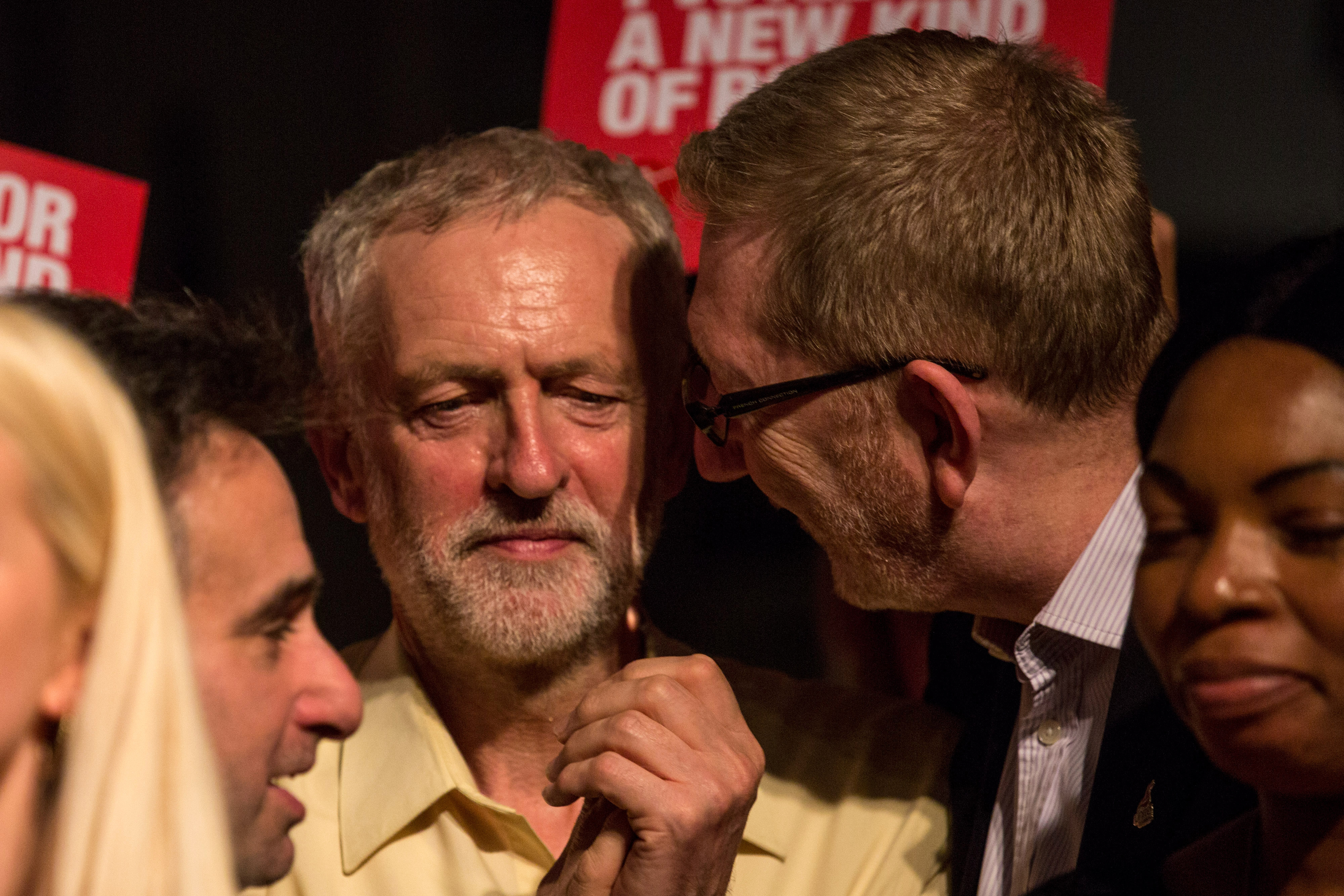
“Liverpool politics has always been a kind of minefield,” says McCluskey when I ask him about what he makes of the city’s scandal, which truly broke out into the open when Anderson was arrested just over a year ago, subsequently stepping down as mayor. “I'm worried about the political situation in Liverpool,” he says, but then he turns his guns not on Anderson, but on the Labour leadership for the way the party handled the selection for Anderson’s successor. “I think what Keir Starmer and David Evans, the general secretary of the Labour Party, have done is despicable and disgraceful,” he says, as the atmosphere in our leather booth becomes less cordial. “The way they acted during the mayoral election, there were three councillors, experienced women councillors, and they were barred from running.”
Now McCluskey is off and away. He says the process of selecting council candidates in Liverpool — in which the national party has taken control of recent shortlists — “has been put in the hands of the right wing, in a socialist city. That is down to David Evans and Keir Starmer, and they ought to be ashamed of themselves.” Has he raised it with Starmer? “Well, I don't speak to Keir anymore, I lost trust with Keir over the Jeremy Corbyn situation,” he says, referring to Corbyn’s suspension from the party in October 2020.
I ask him about his three friends who have been arrested — Anderson, Hatton and Flanagan. “I don't know enough about the police investigation that is currently going on,” he says. “I'm always worried about police investigations that go on for years. My experience tells me that they get involved in a lot of kite-flying, and not a lot then subsequently comes out of that. I mean, years and years of investigations of Joe and others — there's been no charges laid against them.”
He says the Caller report was unfair and could have been written about any major city. “I just hope that the city doesn't suffer as a result of this,” he says. About Paul Flanagan, he tells me: “I'm friends with lots of people in Liverpool, and I've got no intentions of making any comments about people who are engaged in whatever is going on in Liverpool.”
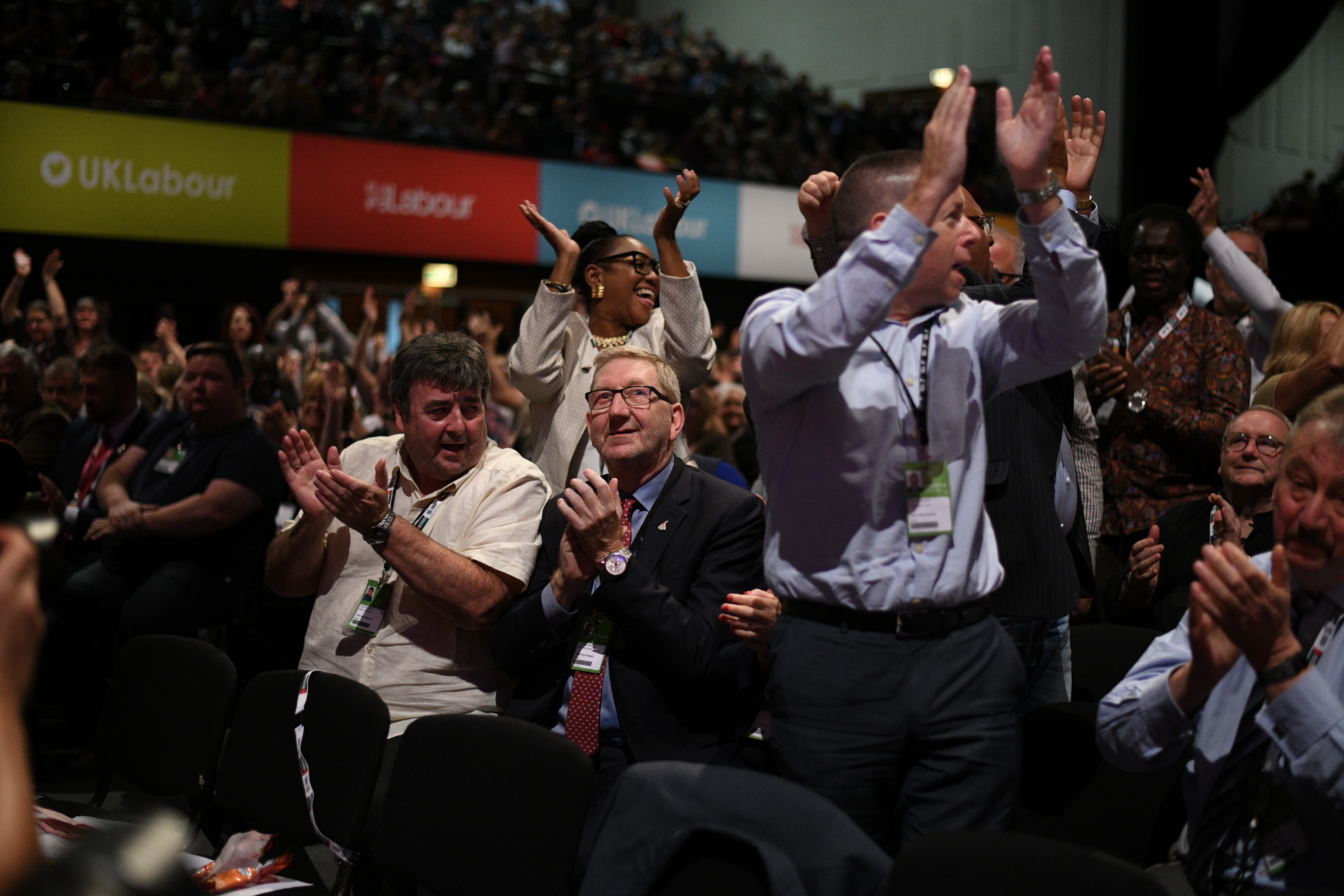
But this is Len McCluskey, the great score-settler of British leftwing politics. Of course he’s going to comment about what’s going on. He comes back to Operation Aloft. “I've been here before, I've seen police investigations in all kinds of different cities, where there is hallmarks of people trying to dig and dig and dig in the desperate hope that they will come up with something,” he tells me. “And they are not interested in whether they traduce or tarnish an individual's representation. So I'm saddened by the fact that this has happened in Liverpool and I hope that people can get back to allowing the city to grow and to develop.”
We talk again about his childhood, recalling trips on the ferry to New Brighton. I thank him for his time and prepare to exit the booth. But McCluskey isn’t quite finished and delivers his warning not to make the article about his friends in Liverpool. “I'll be right onto you at The Post suddenly if there's some daft headline.”
I laugh nervously, and he smiles. “Alright, good luck.”

Comments
Latest
Northern Powerhouse Rail is back on track. We think...
The clockmaker of Wavertree
One of Merseyside’s oldest sports clubs still plays every Saturday
Does Liverpool have a ketamine problem?
No longer defending workers, the retired Len McCluskey is free to defend his friends
'Now make certain when you write this up it's not about fucking Joe Anderson'